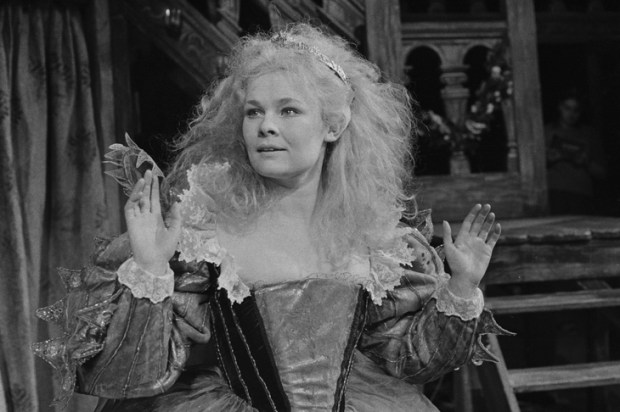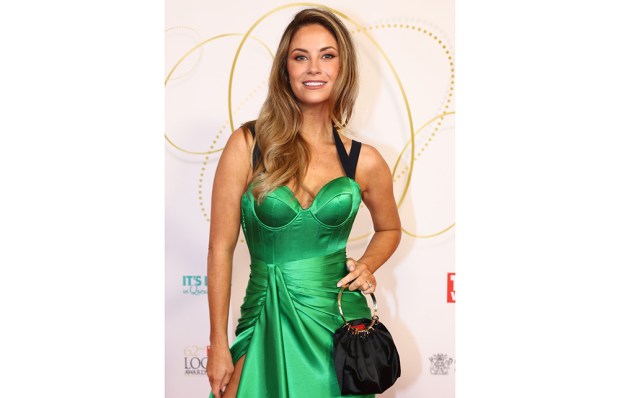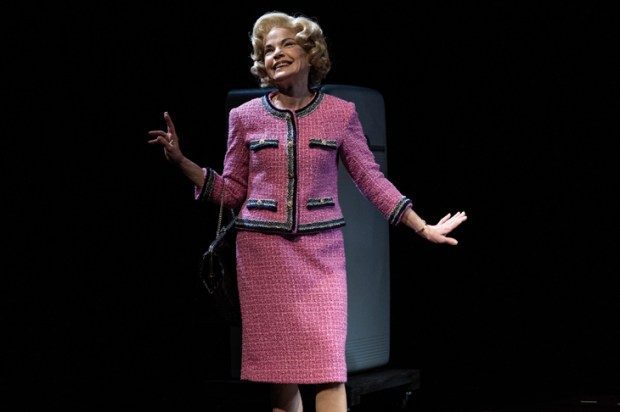How strange it is to be transported back to some version of the world of Lena Dunham. Remember Girls, that radically realistic representation of New York a decade or so ago with Dunham and her girlfriends? One wanted to be a musical comedy star; was someone else in some intrigue with her father? All this was coterminous with the heroine’s relationship with Adam Driver who had a role in a production of Shaw’s Major Barbara and whose depicted ambitions coincided with his real-life ones as a serious and significant actor. Girls had an element of stylised girliness as a group of young women fought for love and self-satisfaction against the biggest backdrop in the world. And Dunham became an intrinsic part of how New York imagined itself: she became – manifestly – like a born-again Woody Allen. You didn’t have to like her to think she was a pretty significant part of the history of self-scrutiny in the Big Apple.
Well, now Dunham (who some time ago transferred to Britain) rides again with Too Much which is so wildly over the top that you don’t know whether to laugh or scream. The upshot is so bizarre that the maddest comedy and the most lubricious crazy-cat dialogue – constantly at some edge of auto-eroticism – is forever about to usurp the action just as the characters are moistening their way to misfired madness.
Dunham herself is still in New York (with her husband, the once gay Andrew Rannells) but she has a sister Jessica (Megan Stalter) with whom she communes with zooming intensity. Jessica is unconventional looks-wise inasmuch as she is portly and she indulges in the wackiest kind of deep flirting which leaves some fraction of everyone else gasping for air, gasping for something.
It is one of the most exasperating performances in the history of acting but it is also full of lightning transitions where Jessica suddenly becomes a lost soul desperately poignant in her desire to give her all for the sake of some reciprocity however confused or retractable or seemingly pointless.
And all of this is done with a money-to-burn extravagance which rivets the attention at the same time that disgust competes with heartfelt sympathy as well as a level of prurience which takes away the breath together with any sense of dramatic logic.
But Too Much is an extraordinary attempt to represent a fragmented identity (broken into a series of stabs at mad passion) and Stalter’s turn as Jessica in its consistently execrable, consistently piteous combination of blind sexual appetite and maudlin delusion is astonishing. It’s a performance of unparalleled strangeness and bareness as well as creepy danger. It is both technically staggering and absolutely far-out as she desecrates every code in sight. She hangs on the words that might eventually issue from the mouth of a female ex. She creates havoc in the life of an English-Japanese boy who is pretty clearly her one true love and Will Sharpe is superb in the role and there is ultimately a place for that most famous of wedding marches.
This doesn’t stop a Cockney boy confessing his love to Jessica at the penultimate moment in dangerously heavy traffic. But part of the logic of Too Much is to juxtapose vertiginous extremities of fantasy with a re-assertion of traditional story patterns.
And it’s typical of Lena Dunham to present her British super sex soap as an exorbitantly gorgeous example of The Empire Strikes Back. That deeply fashionable and formidably talented actor Andrew Scott (Ripley, the one-man Uncle Vanya) comes within an inch of becoming one more fly to the heroine’s spider and he performs with great distinction like the master actor he is – glimmeringly, gamely, with cat-like tread. But we no more expect Andrew Scott suddenly to appear as a guest star than we expect our heroine to fall several floors from the window of a country house.
And what is Lena Dunham doing with a huge Tatler-style party at the centre of this vast intimate dreamscape? Of course it’s all too much – that’s the point. And you can’t really complain when one of the distractions from the main plot is an extraordinary run on comedy routine from Naomi Watts and her on-screen husband Richard E. Grant which is absolutely scintillating. Nor can you object when a very fey and very gay pink-haired boy – who can’t even look squarely at someone he lusts after – turns out to have had a straight period when he went under the very straight name of Gary.
It is to Lena Dunham’s credit that she’s established her comic context here and the upshot (involving a rap song) is hilarious. Yes, you might want to make sure you’re not watching Too Much with the kids around (then again, perhaps they’re the target audience).
But even if you want to kill the protagonist, Too Much – as the title intimates – is an absolutely sustained exercise in narrative excess and it has a lavish unassuageable brilliance.
It’s an incidental point but Megan Stalter twice sings that early Bob Dylan song ‘When the Ship Comes In’ and captures enough of the haunting beauty of that song with its melodic affinity for ‘Blowing in the Wind’ and sends us back to the album (The Times They Are a-Changin’).
The Dylan film A Complete Unknown is now on Disney+ for the sake of people who like to take their cinema lying down and it stands up remarkably well. From memory the storyline has been jigged around: that old folkie Pete Seeger – played with appropriate pulled-back splendour by Ed Norton – was rather less central than he is here and the famous cry of ‘Judas!’ hurled from the audience when Dylan went electric and Dylan’s reply ‘I don’t believe you, you’re a liar’ had a different location and context but it hardly matters.
One thing that is utterly remarkable about A Complete Unknown is that Timothée Chalamet’s imitation of how Dylan sang is flawless. He simply does the Dylan voice so well that you might as well be listening to the early – untouchably grand – Dylan. And it doesn’t matter that the very poignant parting from the Suze Rotolo character (beautifully played by Elle Fanning) and the tension with Monica Barbaro as Joan Baez may strain credibility. The greatest Dylan was written when he was so young that this apparitional sense of a genius who came across as the merest child tallies with the historical record.
Got something to add? Join the discussion and comment below.
You might disagree with half of it, but you’ll enjoy reading all of it. Try your first month for free, then just $2 a week for the remainder of your first year.













